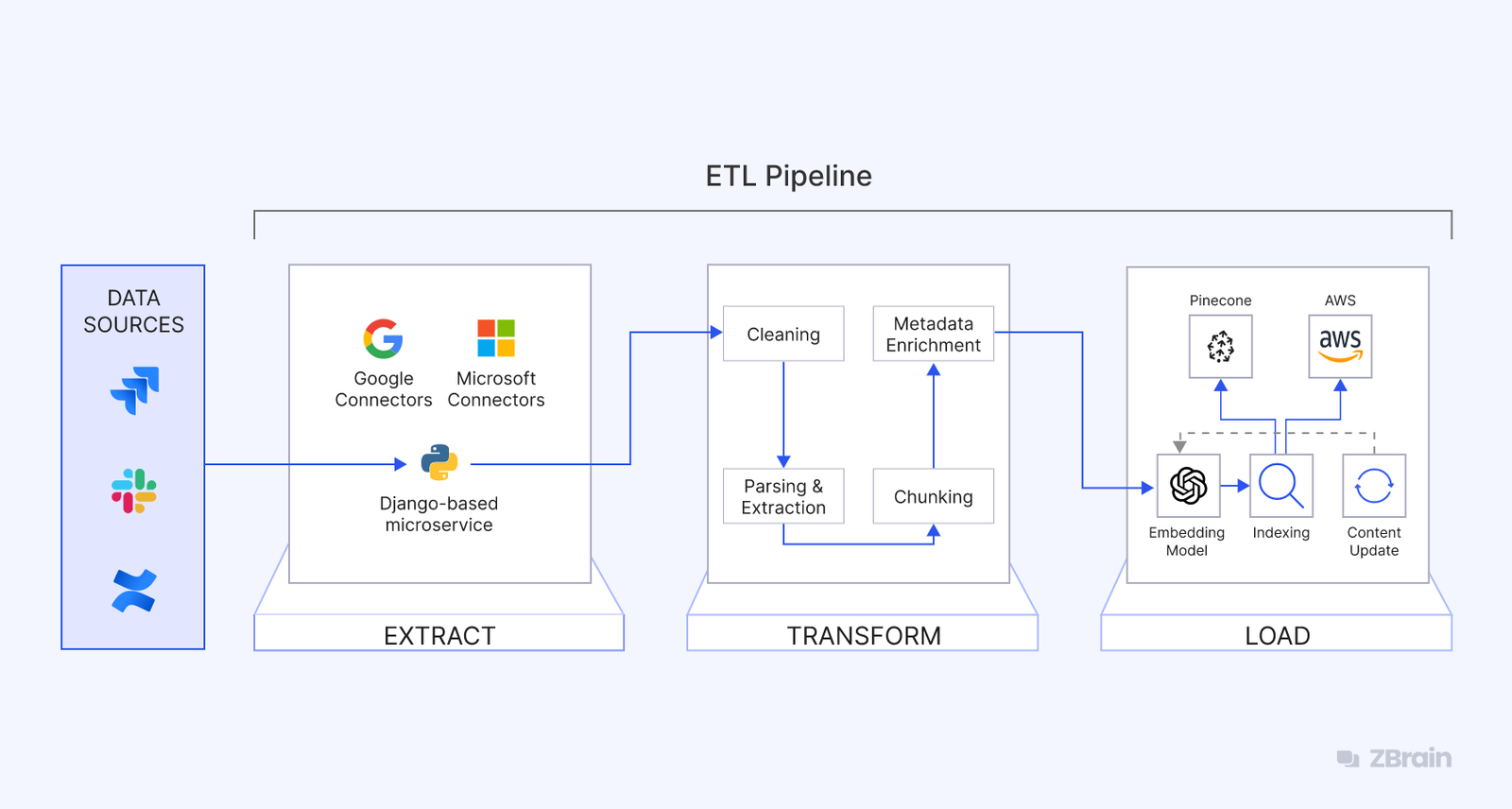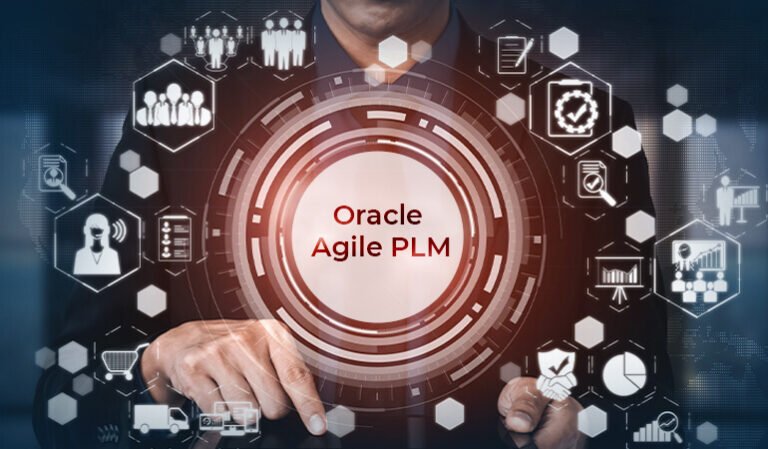Transforming Enterprise Knowledge Management with GenAI: A Smarter Way to Build, Search, and Centralize Insights
In today’s data-driven economy, enterprises generate massive volumes of knowledge every day—from customer interactions to internal processes, contracts, and compliance documents. But without an intelligent way to organize, retrieve, and leverage that information, much of it goes unused. Traditional knowledge management systems often fall short, being static, hard to scale, and dependent on manual tagging and updating.
This is where Generative AI (GenAI) and intelligent orchestration platforms like ZBrain are reshaping how organizations manage and extract value from enterprise knowledge.
The Challenge with Traditional Knowledge Systems
Information Silos and Retrieval Gaps
Legacy systems store enterprise knowledge in silos—across SharePoint, CRMs, ERPs, and internal wikis. Finding the right piece of information becomes time-consuming and error-prone. Search results are often irrelevant, or worse, outdated.
Static Repositories That Lack Intelligence
Conventional repositories require manual updates and lack real-time learning. Employees struggle to find the latest policy, customer insight, or compliance rule, which hampers productivity and increases operational risk.
How GenAI Is Powering a New Wave of Intelligent Knowledge Repositories
Generative AI has the ability to automatically extract, organize, and connect knowledge across systems. Platforms like ZBrain make it easier than ever to build a search-optimized enterprise knowledge repository that learns continuously and delivers contextually relevant answers.
By using retrieval-augmented generation (RAG), vector search, and real-time data connectors, ZBrain provides organizations with a single, intelligent access point for all internal knowledge—no matter where it lives.
See also: How Startups Use Tech to Disrupt Industries
Key Benefits of Search-Optimized Enterprise Knowledge Hubs
1. Accelerated Decision Making
With instant access to relevant data and documentation, employees and teams can make faster, more informed decisions. AI-driven recommendations surface the most pertinent content based on the user’s query and intent.
2. Operational Efficiency
Automating knowledge indexing and retrieval significantly reduces the time spent searching for documents or contacting internal SMEs. This leads to higher employee productivity and reduced operational bottlenecks.
3. Compliance and Risk Mitigation
When policies, contracts, and legal documentation are stored and retrieved accurately, businesses reduce the risk of non-compliance and misinformation. GenAI agents can even be programmed to highlight regulatory gaps or inconsistencies in real time.
Centralizing Intelligence Across Functions with ZBrain
While improving enterprise knowledge access is critical, businesses must also ensure that intelligence is shared across teams—sales, HR, finance, legal, and more.
The ZBrain Center of Intelligence acts as the core orchestration engine that unifies data across business functions using task-specific AI agents. Whether it’s generating due diligence reports, validating contracts, or analyzing customer feedback, ZBrain connects the dots between siloed data to power real-time insights.
Real-World Use Cases Across Departments
Sales and Marketing
ZBrain helps marketing teams access past campaign data, customer personas, product positioning guides, and competitor insights from a centralized repository. Sales teams can retrieve product FAQs, client-specific proposals, and success stories instantly.
HR and Operations
AI agents pull HR policies, onboarding documentation, and training guides from multiple systems into one intuitive interface. ZBrain also helps operations teams manage SOPs, compliance checklists, and escalation protocols efficiently.
Finance and Legal
By automating contract validation, invoice matching, and regulatory documentation access, ZBrain enables finance and legal departments to save hours of manual work. Its AI agents can also flag anomalies and missing clauses in real time.
How ZBrain Works Under the Hood
Intelligent Document Parsing and Classification
ZBrain automatically ingests documents from various platforms (Google Drive, Dropbox, Notion, CRM, etc.) and classifies them based on structure, content type, and business domain.
Knowledge Graphs and Semantic Linking
The platform builds a dynamic knowledge graph that links related concepts, policies, terms, and business rules. This enables natural language querying and deeper contextual understanding.
AI Agent Orchestration
Each function-specific AI agent (e.g., contract validator, NDA analyzer, due diligence agent) uses this centralized knowledge to execute workflows, validate rules, or generate reports—making them more accurate and efficient over time.
Getting Started with Enterprise-Grade Knowledge AI
Implementing a GenAI-driven knowledge hub doesn’t require replacing your existing systems. ZBrain integrates seamlessly with your existing tools, unifying and enriching them with AI insights. This means quicker deployments, reduced disruption, and faster ROI.
Implementation Steps
- Data Source Integration: Connect your existing repositories, CRM, and file systems.
- Agent Configuration: Deploy prebuilt agents tailored to your business needs.
- Custom Workflows: Build workflows using no-code orchestration to suit different departments.
- Monitor and Improve: Use feedback loops and analytics to continuously optimize agent performance.
Final Thoughts
In the age of AI, knowledge is no longer just power—it’s leverage. Enterprises that modernize how they organize, retrieve, and act on knowledge will unlock exponential gains in speed, accuracy, and collaboration.
Platforms like ZBrain are leading this transformation with an intelligent, scalable approach to enterprise knowledge management. By combining AI agents with centralized intelligence and smart search capabilities, ZBrain is helping companies future-proof how they manage information—turning every byte of data into a strategic asset.






